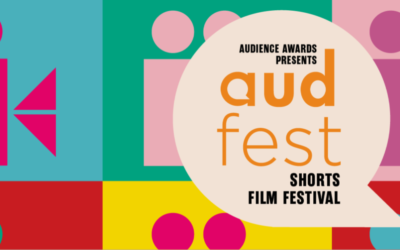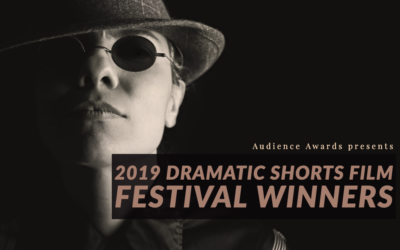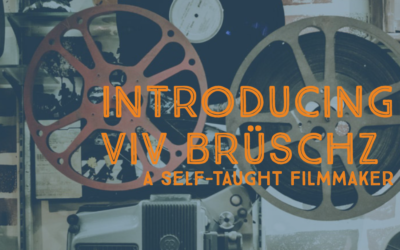Julian Grant is a director, producer and artist, born in London and currently working in Chicago. He completed his first feature, Bust a Move, before the age of 30, dedicated his early years to independent filmmaking and in the early 2000’s was the Producer/Director of the mini-series Robocop: Prime Directives. Today, he is working on his new drama, Finding Hope, teaching film at Columbia College in Chicago and will be a judge at this year’s Chicago International Reel Shorts Film Festival.
Grant’s latest project will premiere in early 2015. “I just wrapped up Finding Hope, a faith based drama. It’s Sixth Sense meets City of Angels.” He will soon begin production on The Cropsey Tapes, a new Found Footage horror film for Wildeye Releasing. Much of Grant’s work fits into the action and horror genres. All of his work is based upon myth. In an interview with the Chicago Art Machine Grant elaborates, “The ‘Frankenstein’ myth—that of redemption, the monster made flesh, the humanness of the most inhumane—fascinates me. I shall continue to explore this story for a long time.”
One of Grant’s recent micro-feature films, FLOST (F*ckload of Scotch Tape),is “a throwback to the crime films of yesteryear mixed with the music of Kevin Quain.” As described in a critical essay by Zoran Samardzija, FLOST, “bombards its audience with music video and comic book aesthetics, surveillance footage, split screens with multiple temporalities, digital mimicry of celluloid home movies and many other styles.” Grant describes it as “a film noir musical—a mash up of two of my favorite genres and an example of Indie cinema at its purest. No studio would finance a film as crazy as this. It’s a loving tribute to the bad, the beautiful and the bizarre. I dedicated it to my sons.”
Grant worked for Lionsgate, HBO, Lifetime, Syfy, among other networks for twenty years making TV movies. When he became a professor at Columbia College, Grant was, “determined to return to my roots as a way of showing my own students how to do it for cheap. My goal has always been to demystify the filmmaking process and with the advances in digital technology, home editing and the support of the college, I can pretty much well make anything I can afford to produce.” As a professor, Grant passes on his “no-holds-barred” production philosophies. “CC gives me the chance to pass on my practices to the next generation of filmmakers and encourages me to make my own films. I am surrounded by ideas, stories, talent and colleagues who inspire me. It’s the best place in the world for a working artist and one who wants to share their passions.”
Teaching is only one avenue that inspires Grant. Other developments that excite him are the increasing accessibility to filmmaking. “New stories. New media. Low cost ways to make it and get it out there. Digital distribution. The democracy of the Internet and the ways to interact worldwide with supporters and fans, makes filmmaking a joyous global endeavor.”
Outside of feature filmmaking Grant enjoys animation, photography and writing, “ I make animated films for fun and myself. Also fine art photography. I love shooting stills and writing. I am looking at creating a Microcinema Manifesto for 2015 to put into words how I’ve made my last seven feature films and to share the skills I’ve amassed in the last 20 years.” Grant is inspired by the work of Robert Rodriguez, director of the 2005 crime-thriller Sin City; Jim Jarmush writer and director of the 1995 drama Dead Man, starring Johnny Depp; along with Steve Soddenberg.
Since Grant’s initiation into the film industry in 1985, when he got his BFA in Film Production and immediately began working in ‘Hollywood North’, he has witnessed a shift in filmmaking. Here is what he sees as the future of film. “The hybridization of cinema and gaming platforms seems inevitable with narratives and viewer interaction as a new form of cinematic expression. There will be a passive mode where the story unfolds, but also an ACTIVE mode where you will be encouraged to play as Antagonist or Protagonist. Simple cinema as we now know it will be as archaic as early photography. The ever-expanding gaming market compounded with the development of photo-realistic avatars and real-time processing will result in an immersive, massive multiplayer universe of ‘ongoing’ cinema with virtual stories driven by acts of God and what other programming dictates.”




